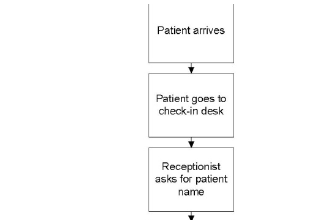Going to the hospital can be stressful for adults, but for children, it’s downright terrifying. They don’t feel well, they’re in an unfamiliar place, and people keep poking and prodding them and doing painful things. Even for kids who have frequent admissions, the whole situation is unpleasant and confusing.
One primary way that hospitals meet the needs of children and families is through the use of child life programs, which, according to Speak Now For Kids, are run by “specialists [who] work with kids to educate and prepare them for the various aspects of their medical treatment and help them through play and other activities to express their feelings.” In many ways, child life specialists are a cross between social workers, teachers, and nurses, and not only do they transform how children experience hospitalization, but they can also teach other medical specialists a great deal about how to help children cope with any kind of medical treatment.
From Blood Draws To Blood Cancer
Part of what makes child life a unique specialty within the medical ecosystem is the fact that, especially at larger children’s hospitals, specialists may guide children through a wide variety of medical experiences. For example, the same specialist might engage in medical play to prepare a child for a routine tonsillectomy, or they might spend months interacting with a single child who’s going through cancer treatments. And the process is very different.
While a child having a single procedure for an acute condition might be frightened or upset, their lives will return to normal soon enough. For children with serious health problems, though, years of hospitalizations and painful interventions often mean that they understand the logistics of the hospital, but require emotional support. In these cases, child life specialists may provide a form of play therapy, do art, and teach coping skills that can help children reduce their stress and cope with traumatic health experiences.
Service And Support For Families
Of course, hospital stays aren’t just upsetting for children – they’re hard on the entire family. And though child life specialists are only focused on children, they make pediatric hospitalizations, which account for 17% of all hospital stays, easier for everyone. That’s why all healthcare providers should take cues from child life departments in handling pediatric care.
When a child has a simple procedure, such as getting a dental filling, doctors and parents spend time preparing the child. They might take them into the office in the days before the procedure and let the child sit in the chair and touch the tools. This helps familiarize the child with what to expect on the day of the procedure – and similar principles apply to child life. In many ways, child life fills in the gaps when parents don’t have the tools or expertise to help their children, and they build relationships in a way that a primary care physician might, when hospital-based specialists may not be able to do so.
Another way that child life specialists work with entire families is by supporting children whose parents are undergoing treatment for a serious health condition. If a parent is being treated for cancer or heart failure or another serious illness that results in frequent hospital stays, child life specialists can help young children understand the illness and treatment, reduce fear of the hospital environment, and provide similar play-based therapies that aid in emotional processing. They also work with the siblings of sick children.
Family Care And Your Practice
All children’s hospitals and many other hospitals have child life specialists, but it is still an emerging and lesser-known specialty. That’s doesn’t mean it’s optional, though. Rather, there are definite, evidence-based reasons to have child life specialists on staff.
The most important reason to employ child life specialists is that most doctors, even pediatricians, aren’t equipped with developmentally appropriate language or education; instead, they tend to speak directly to the parents. Child life specialists, on the other hand, are trained to understand children’s mental processes around health concerns and combine psychological support with education. And studies show that this kind of support helps children remain calm throughout treatment, leading to better physical and emotional healing.
Even teenagers, who are often asked to fully participate in their treatment as adults, can benefit from child life services – and healthcare professionals often overlook this fact. In particular, child life specialists can foster community among frequently hospitalized teens, encourage socialization, and ensure that their social and emotional development remains on track despite unusual circumstances.
The fact is, no matter who your primary patients are or what your facility specializes in, your practice can benefit from having child life specialists on staff. Even when children aren’t your primary patients, we need to center a new vision of whole family health.








